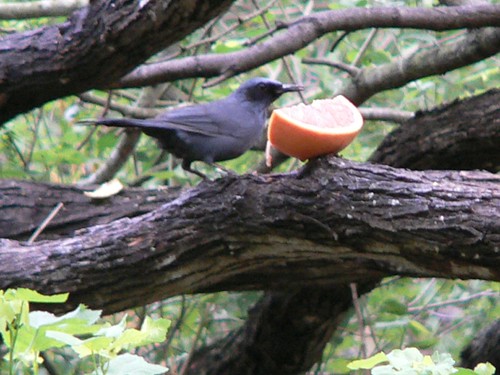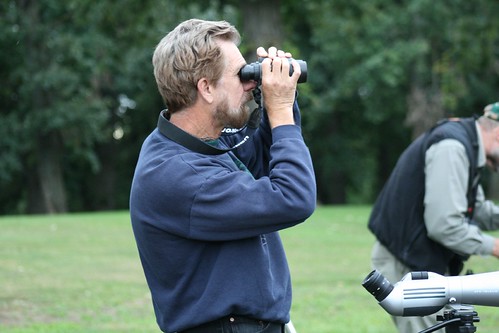1. Go birding as much as possible
 |
| Pihea Trail - Kauai, Hawaii |
If you want to improve your birding skills—bird finding, bird identification, bird behavior studies, etc.—then the easiest and most effective way is to be out in the field as much as possible. You can study hundreds of books, listen to hours of sound recordings, and attend amazing lectures on specialized identification topics, but the only way you can put your knowledge into practice is to be exposed to where the birds are. This doesn't mean you need to be hiking in the best birding locations or even during the best time of day. I have had some highly memorable and learnable birding situations just by walking around the industrial park where I work at lunch time. Take every opportunity that arises to hit the trails or backroads with your binoculars in tow.
2. There will not always be lots of birds
 |
| Blue Mockingbird in Texas a few years back |
This is probably the most frustrating thing when you're a new birder (at least from experience birding with newer birders). You get up early, drive for 2 hours to a great habitat, one where just the previous day someone found a bird you really want to see. When you get there you hike for 3 hours and NOTHING!
It is just part of the process. There will be times where there just aren't that many birds at that given time and place. I've seen this happen on organized hikes as well and this is usually when everyone resorts to one or more of the following: insect study, tree identification, or talking in great detail about trips to far away places that had lots more birds. Try not to get frustrated!
3. Find a mentor or "expert"
 |
| Birding with the one and only, Kenn Kaufman! |
I love to go birding by myself. I find it relaxing and a great escape from work and other pressures of life. But if you can find a great birder who you can tag along with on bird hikes your skills will improve dramatically. I have had the benefit of going on numerous hikes with several truly expert birders and it is amazing how much I've picked up just from being around them and paying attention. A mentor has the experience and has been birding a lot (see point #1) so they can tell you what trails are often productive, what season yields more rarities, or where that hidden grove of trees that occasionally has a roosting owl is. Not only have I gained more knowledge from my mentors (I've had several ongoing ones) but I've discovered new haunts to explore and new techniques to identification; nuggets of information not easily found elsewhere.
These are just 3 simple pieces of advice that will hopefully help out newer birders.


great advice!
ReplyDeletesolid advice, really for all birders! : )
ReplyDeleteGreat post! Terrific advice!
ReplyDelete